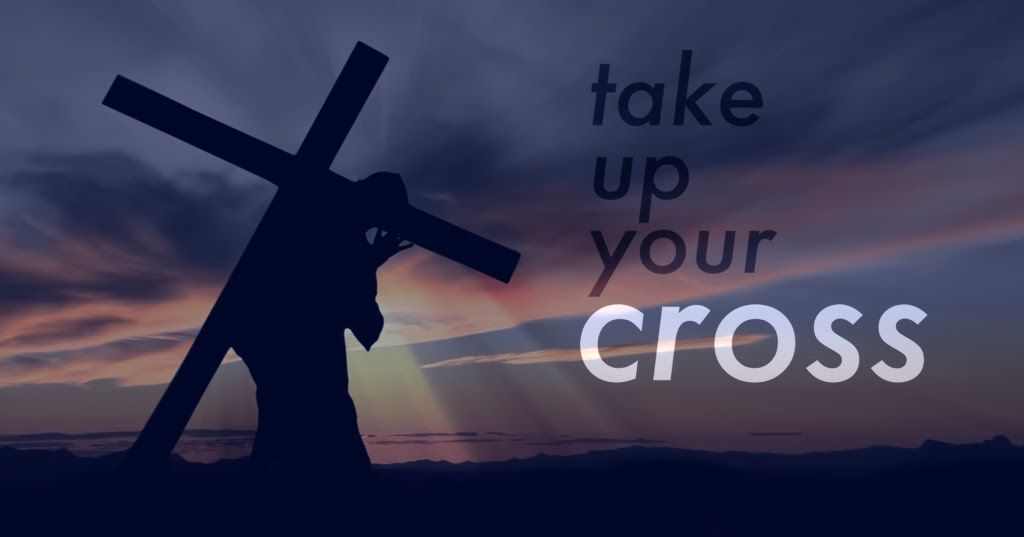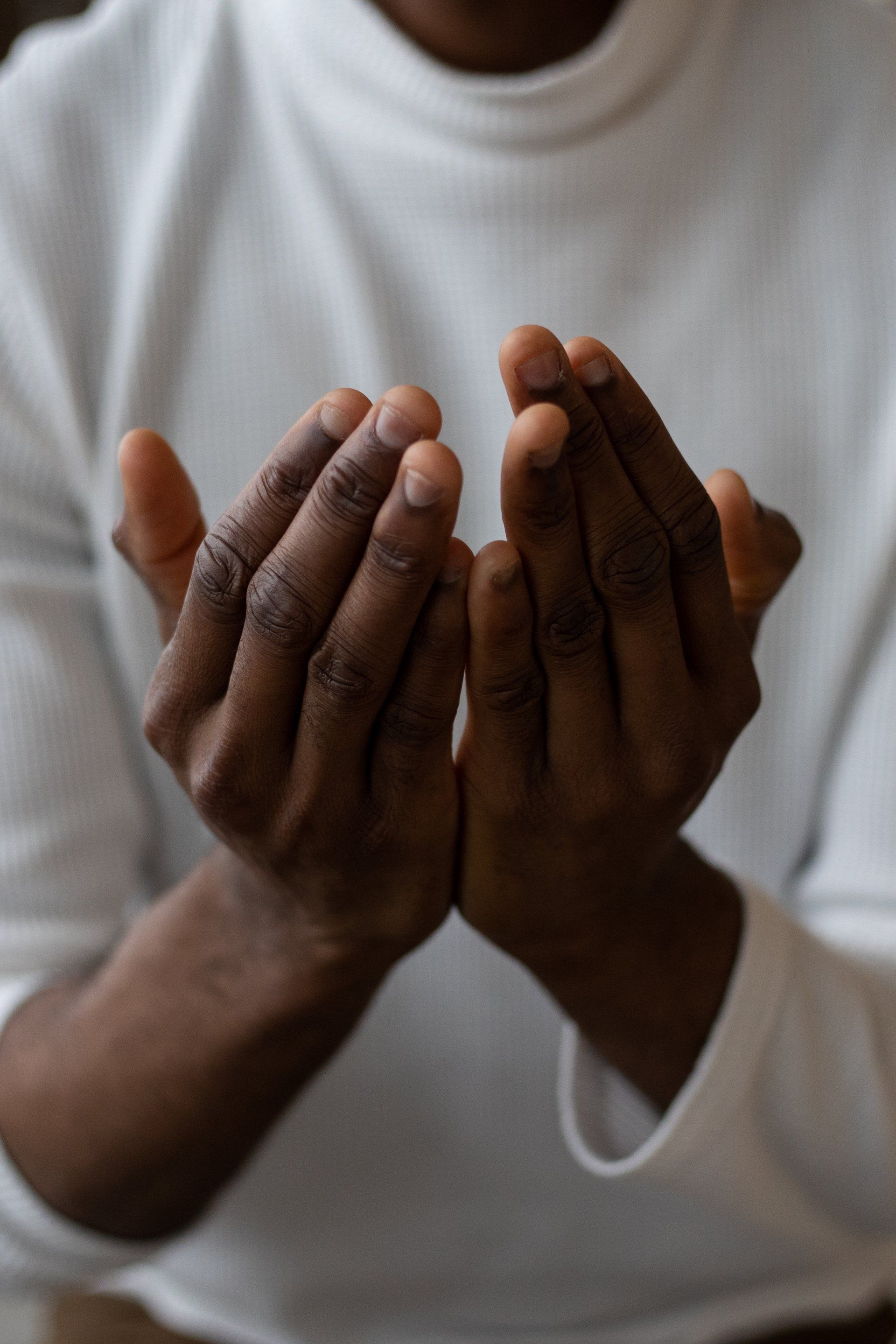A mini Holy Week Sermon from each of our pastors.

Matthew 21: 1-11
Rev. Dr. Galen E. Russell III
Palm Sunday
April 2, 2023
“Tell the daughter of Zion, Look, your king is coming to you, humble, and mounted on a donkey, and on a colt, the foal of a donkey... They brought the donkey and the colt, and put their cloaks on them, and he sat on them.”
Prayer: May we see your realm, O God, coming into our reality and becoming our reality. Amen.
Today’s time of worship has a rollercoaster feel to it, doesn’t it? We start out joyously, waving palms, tickling your neighbors, celebrating Jesus entry into Jerusalem! It’s Palm Sunday. Then the mood shifts. We end worship today with Jesus dying on the cross. It’s Passion Sunday. We began singing “All Glory, Laud and Honor,” and we will end by singing, “O Sacred Head Now Wounded.” We heard the word “Hosanna!” which means “Save us!” in Hebrew. So it’s no wonder that the crowd surrounding Jesus was shouting “Hosanna!” to him because in Hebrew Jesus’ name is “Yeshua” which translates “One who saves.” But by the end of the week, the joyous crowd was coerced into shouting “Crucify him!” Huge contrast.
Two months ago, Professor of New Testament Dr. Greg Carey asked our Lancaster Ministerium clergy group which one do you focus on? Palm Sunday? Or, Passion Sunday? Some of our colleagues said Palm Sunday. Others said Passion Sunday. I said both! And Dr. Carey said, “Whoa! People will be really ready for lunch!” Maybe.
But, I think both perspectives I think are necessary as we begin Holy Week. Because that first Holy Week was marked by the same contrasts. Matthew has Jesus taking his cue from Zechariah 9 describing the king using a donkey as his ride to enter into Jerusalem. Jesus came in protesting Roman imperial rule. This totally contrasts the way Pilate and other Roman big wigs would have ridden into Jerusalem riding a big, powerful military war horse followed by the military parading Roman banners. The Romans loved their parades. Lots of pomp and circumstance. Lots of showing off their military conquests. Lots of affirmation of greatness.
By contrast, Jesus comes into Jerusalem, the center of religious and political life of ancient Palestine, not showing military power, but instead power in the people’s voice as they engaged in a non-violent peaceful protest. He shows allegiance not to the Roman empire, whose citizens thought that the Emperor was a god, but he showed allegiance to God, the one real and true God. By riding on a donkey and by hosting this parade, Jesus had the temerity to send a message to the imperial culture that it’s God’s rule in life that matters. God’s ways are what living in God’s realm is supposed to be all about.
God’s realm is not about strength as in power over others. It is real strength that is demonstrable by humility and kindness. It’s not about making God great again through coercion and dominance. It’s about making God great through love and service. It’s not about making Jesus the warrior/king ruler over all the forces of evil. Nope. It’s about living in relationship with others under the rulership of God. It’s about being on the opposite side of pride, arrogance, and an inflated sense of our importance and talents. It is based fundamentally on a caring and compassionate attitude toward others without calling attention to oneself.
We have to take our cues from these values. Indeed these four people, heroes of faith in my book, took their cues from having demonstrable humility. Mahatma Gandhi, Nelson Mandela, Mother Teresa, and Martin Luther King Jr. All of them heroically dedicated their energies and time to serving their ideals and tirelessly worked to improve the living conditions for other people. Yet they remained modest and unpretentious about their astounding achievements and never tied them to their own personalities. They humbly served not their egos, but instead a greater external cause. Each of them, I believe, was under the rulership of God.
And the rulership of God is life with God. Influenced by God. Touched by God. It is dominated by love, grace, humility, forgiveness, justice, laughter, and sheer joy. Not arrogance and pride and self-preoccupation.
The terrible, sad irony is that Jesus came to Jerusalem wanting to show the powers that be—the religious leadership, the Roman government—this is how to live life with God. How to live a life of love and grace, justice and righteousness, humility and kindness. But instead those leaders showed not only that they didn’t know how to live that kind of life, they only knew how to kill it and take it away.
So, my encouragement for us on this Palm Sunday is to run from the emptiness of power, arrogance, and dominance over others to the beauty and fullness of life that is full of God, and free to lift others up, and help create a more just world for all. May God help us on our journeys this week. Amen.
_____________________________________________
Matthew 27:11-49 (selected verses)
Rev. Fa Lane
Passion Sunday
"My God, my God, why have you forsaken me?"
Jesus’ cry to God is a familiar one for us as we wonder about tragic or deeply disappointing things that happen to us. Children are gunned down, relationship ends; a good friend or a loved one dies suddenly; or you received a ghastly diagnosis. The news is repetitive about lives torn upside down, financial burdens, and wars that disrupt our community life. Why, is the question we ask. Why?
Jesus asks for God to not forsake him as he is abandoned by his followers, interrogated by politicians and religious leaders, and beaten. As his situation turns more dire and dark as the week progresses, it is understandable that he feels abandoned. He has tried to prove his own faithfulness first, by overcoming the temptations in the wilderness.
He recruited disciples to teach and to develop as leaders who would proclaim the good news of God’s kingdom. He taught crowds on the mountain, in homes and the synagogue. His life’s work, his call, as revealed by God was to help people understand God’s ways and to be at peace with God and one another.
If you recall Jesus’ temptations, you might see where we have similar temptations for wealth, for power to override someone, or control the outcomes. Jesus rebuked his listeners to not practice pious showmanship, but to give alms humbly; to pray privately; to provide for others’ without concern for reimbursement. He healed the sick, shared meals with sinners, and challenged the cultural rules that created division among people.
This is the work he did as God’s anointed son. This is the work that brings him to this week before us where he will provoke the powers that be in Jerusalem. We have the benefit of knowing that Easter is coming. But, as we go through the week, I invite you to slow down to be mindful of the trials, the disappointments and the tears of the days prior to Easter.
In fairness, I can understand why Jesus would question God about abandoning him. He had been doing God’s will all along.—Don’t we get discouraged when we are carrying heavy burdens and face our own inability to fix bad things that happen. We are familiar- to some small degree- with what Jesus went through. To feel so hopeless and misunderstood is frightening and lonely.
For Jesus, and ultimately for us, the cross becomes the proving ground of whether God is faithful to the promise of being with us or not. Would Jesus be spared or not? Would death on the cross be the end of the story, or not?
How does Jesus get to the other side of this cross he must bear? Jesus would have known the psalms by heart. I suspect he may have silently recited the 23rd Psalm with particular emphasis on the lines “Yea, though I walk through the valley of the shadow of death, I will fear no evil for You are with me.”
I wonder if we can hold onto that same verse during our own trials? How do we remind ourselves, as Pastor Galen said last week, that God always has the last word? Love Wins!
We travel this week with Jesus to remember there is more to his story (and ours) than the work and the trials and tears, to trust that God will make a way when there seems to be no way.
If you recall the ending of Psalm 23, let us recite it as Jesus might have. It’s our reminder that the still speaking God isn’t finished with our story yet. Let us share it together: “Surely goodness and mercy will follow me” all the days of my life and I will dwell in the house of the Lord forever.”
Amen.









